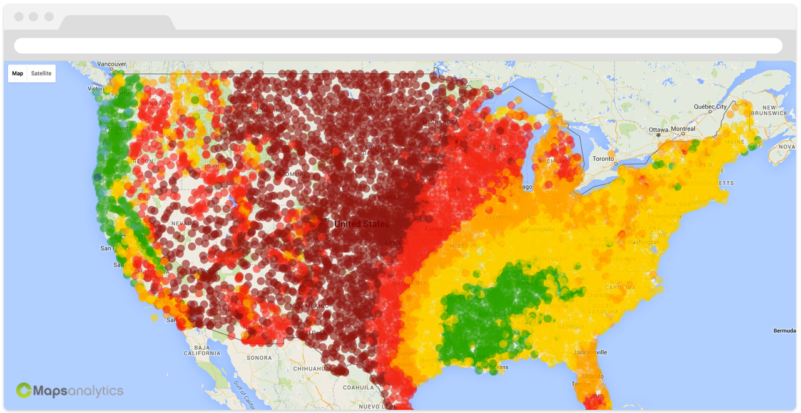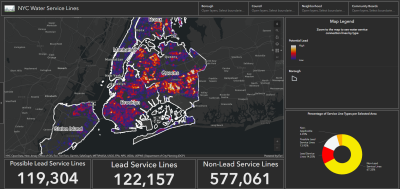Over time, geospatial data has become as important as the geospatial application itself, since both are necessary components for a working GIS. With demand for proprietary and third-party data growing, open-source and proprietary GIS vendors have each responded in their own way. Both parties agree that location data is a commodity—but not on who should have access to it.
When big data analytics was on top of the hype cycle a few years ago, data was considered to be “the new oil,” promising a high ROI for those who were able to distill hidden patterns and insights and then predict the future with them. Location technology was seen as an essential component of big data analytics, although in hindsight it seems that this holds true only for the automotive industry.
The “data = the new oil” analogy was revived at the Carto Locations event held earlier this year in Madrid, Spain where several speakers made a plea for further democratization of data access. They also argued that the demand for proprietary and third-party data is based on an entirely new business model, and repeated the “data = the new oil” analogy an interesting twist: While location data has become a commodity, it is not the new oil.
Not the new oil
What they mean by this is that location data should be accessible to all, and not just to a handful of people (or companies, for that matter). The oil analogy suggests that location data itself is scarce and because of that, it should come with a high price tag.
Data is not scarce. Models for crowdsourcing data have become a success, enabling companies like Uber and Foursquare to source extensive location data for their business activities. Crowdsourcing has also enabled geospatial companies to feed their location intelligence tools, as well as do big data location analytics and visualize the results on a map or dashboard.
 Meanwhile, proprietary GIS vendors have recognized the need for further democratization of data access. They have started providing their users easy access to authoritative data, and have become data providers in the process of launching their cloud-based subscription services. This process is ongoing: For example, the last Esri UC featured no fewer than four such initiatives (the related companies are Microsoft, Airbus, HERE and DigitalGlobe).
Meanwhile, proprietary GIS vendors have recognized the need for further democratization of data access. They have started providing their users easy access to authoritative data, and have become data providers in the process of launching their cloud-based subscription services. This process is ongoing: For example, the last Esri UC featured no fewer than four such initiatives (the related companies are Microsoft, Airbus, HERE and DigitalGlobe).
It should also be noted that Esri also uses its ArcGIS Online platform for storing geospatial data, tools, and maps from its user base. Over time, this could help the platform become an ecosystem for geospatial data, as a sort of geospatial Google where you can search and find all things geospatial.
In short, the market is moving to make data more accessible, and not treat it as a scarce resource like oil.
The real challenges of exploiting location data
It´s clear that the approaches outlined above, in keeping the data proprietary, differ radically from the approaches taken by open-source geospatial companies, who make a plea for further democratization of location data. However, companies taking either approach are faced with the same challenges as they try to give users access to the full value of the data.
First of all, any approach must recognize the need for making data searchable. If data is not searchable, it cannot be found by the user. Providing metadata is simply not enough: A search engine should be able to find local and online data needs within seconds by a search engine or the user will end up frustrated. No matter how the data is sourced, it needs to be indexed, prepared and edited to be fit for analysis–a challenge for both open and closed sourced companies.
The aggregation levels of geospatial data also presents a challenge. Data is generally aggregated at the state level, county level, or by ZIP code, and this rigid hierarchy can hide patterns. To break away, new approaches are necessary to expose the insights in the location data.
Since there seems to be no end in sight for big tech companies looking to monetize location data, it will be interesting to see how long the argument will hold true that “location data is not the new oil” and should be accessible to all.






